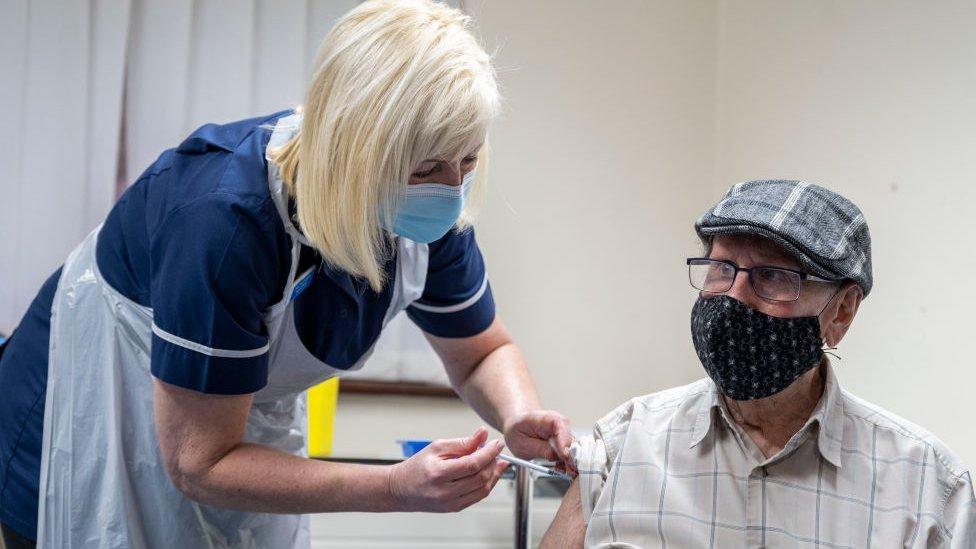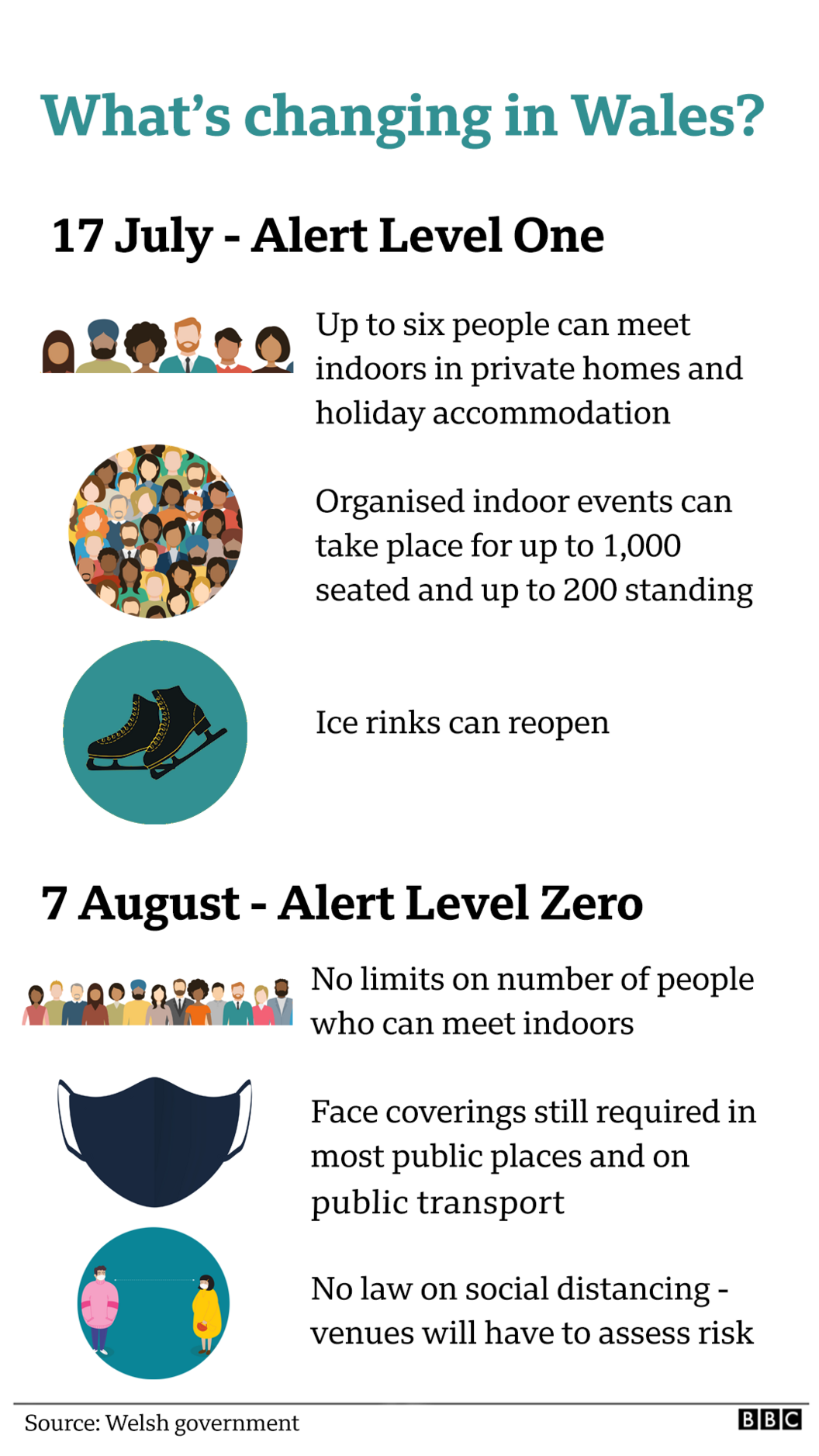Covid: If Wales' restrictions ease, be sensible - top doctor
- Published
- comments

Further restrictions are set to ease in Wales, but Mark Drakeford said there will be no talk of "freedom day" from ministers
People must be sensible if most of the remaining Covid restrictions ease this weekend, Wales' top doctor has warned.
Dr Frank Atherton said responsibility for staying safe was shifting further towards people's behaviour and away from government regulation.
The Welsh government is set to confirm on Friday if Wales will move to alert level zero, external from Saturday.
It would mean no limit on indoor meetings and an end to 2m distancing.
Face coverings would still be required in most public indoor places, including public transport, though not in pubs, restaurants or schools.
Social distancing rules will no longer be law, but venues will need to conduct risk assessments to decide on appropriate safety measures.
It has already been confirmed that, as of 7 August, fully-vaccinated adults in Wales will not have to self-isolate after close contact with a positive Covid case.
Despite a third wave of coronavirus cases still spreading infection, Dr Atherton, Wales' chief medical officer, said it was right to relax remaining restrictions as the vaccination programme had "broken the link" between community transmission and people ending up in hospital.
However, he did say that he would like more of those under 30 to take up the vaccine.
As of Wednesday, Public Health Wales figures showed 75% of young people - aged 18 to 29 - had taken up an offer of a first Covid jab, with 120,706 not having received a first dose.
Dr Atherton said "we shouldn't be bribing people to have vaccine" with incentives like discounted takeaways being offered in England.
"We need to make sure that people understand the evidence, that they understand the benefits that they'll get from vaccination, not just to themselves, but to their loved ones and their communities," he said.
UK experts are set to recommend all 16 and 17-year-olds should be offered a Covid vaccine and Dr Atherton said Welsh ministers would make a decision once the information was published.
"We are still in the third wave of coronavirus infection here in Wales," he said.

Dr Atherton says the vaccination programme has been a "gamechanger"
"But what we have seen over the last 10 days is that the rates - which have been quite high - have been stabilising, and even coming down a little bit.
"The thing that also gives me comfort is that the rates in the over-60s have been quite stable for quite some time."
According to Public Health Wales, between 91% and 96% of those in age groups over 60 have been fully vaccinated, as of 29 July.
He said that gave him confidence that regulations could now be relaxed, adding that, on the whole, people have been "very compliant" with rules and had "risen to the challenge".
What can I do in Wales from 7 August?


The level of adherence to coronavirus restrictions has surprised Dr Kimberly Dienes, a lecturer in clinical and health psychology at Swansea University.
She has been advising the Welsh government about the possible implications of its regulations on the public's behaviour.
Originally from Chicago, she said she was used to Americans being more rebellious to government rules.
She said: "You would really would expect during such a difficult time for people to have had some rebellion, some fighting back.
"And some have, absolutely. But the vast majority have actually gone along with regulations, have acted towards the good of the community, and that is something that has really been positive to see throughout the pandemic."

"I have been a little bit surprised at the level of adherence - that it is so high," says Dr Dienes
So how will people behave when they are offered the greatest freedom yet from coronavirus restrictions since the first lockdown was imposed across the UK in March 2020?
Dr Dienes does not expect the majority to suddenly exploit these new opportunities.
"I think a lot of people are going to be very happy about the relaxation of regulations, but at the same time there is going to be a loss of security without them," she said.
"Now it is just going to be guidance, suggestions, and not regulation. And that is going to make some people anxious, a little bit concerned, and a little bit confused about what to do moving forward. Along with that happiness."
- Published26 January 2022

- Published28 May 2024

- Published3 August 2021

- Published19 July 2021
